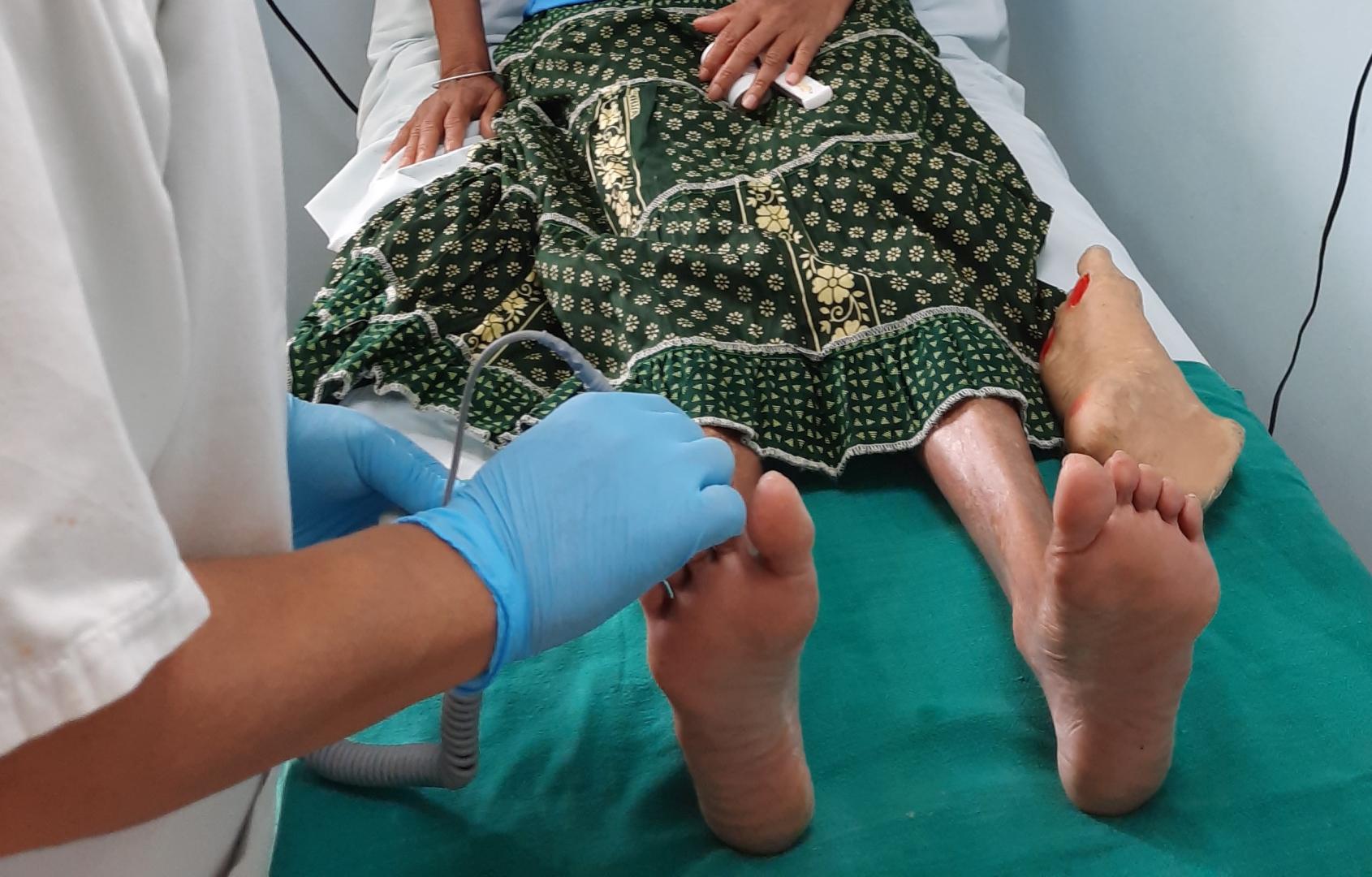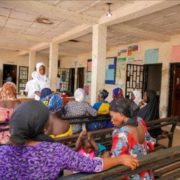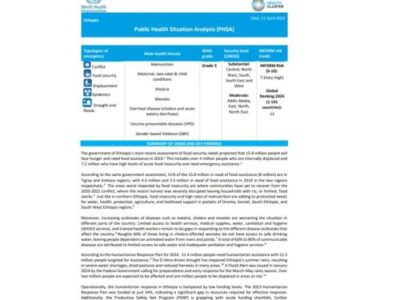Port Louis – One of the severe consequences of diabetes complications is the risk of lower limb amputation. Damaged nerves or reduced blood flow to the feet can cause ulcers that may become infected, and in severe cases get partially or severely gangrened. In Mauritius, around 500 amputations are carried out every year, but 85% of them are preventable.
To promote foot care and prevent amputations, the government in 2010 opened a Diabetes and Vascular Health Centre at a main hospital in the south of the Indian Ocean island. The centre includes a diabetic foot care clinic. Seven more such clinics have been established over the past decade. Improved foot care services as well as health worker training are reducing the number of amputations per year. By 2018 the number had dropped slightly to 450. The rate of foot ulcer healing within a month has now risen to 60%.
“Over the last five years, a huge leap has been made in terms of structuring the diabetic foot care clinics across Mauritius and today patients with diabetes are benefiting from standard management,” says Dr Yaasir Ozeer, the head of the Diabetic and Vascular Health Centre.
More than 60 000 diabetes patients were seen in 2019 in the various diabetic foot care clinics and primary health facilities across the country. Foot care clinics recorded around 25 000 visits for diabetic foot ulcer treatment. Foot screenings are done to detect diabetic neuropathy or nerve damage, and diabetic vasculopathy – damage to blood vessels.
Care for patients attending the diabetic foot clinics ranges from providing information on how to check for signs of foot ulcers, foot ulcer treatment, scheduling yearly screenings – or more regular checks depending on the risk category – and encouraging healthier lifestyles such as quitting smoking and cutting down on sugar, salt and fat.
“I was afraid and feared that I might have to undergo an amputation of the toe,” says 65-year-old Boyragee Kailashsingh who hurt his toe in 2018 while stepping out of a car. He sought treatment at the Diabetic Vascular Centre.
“Now my toe is healed. But I’m still attending the centre for regular check-ups. We are lucky to have free, specialized foot care services in Mauritius. It would have cost me a lot of money in the private clinics,” he says.
Limb amputation can be averted through early detection, regular screening, blood sugar control and prompt treatment of deteriorating ulcers. But it is also crucial to have specialized personnel to treat ulcers as well as the capacity to care for complex cases or worsening ulcers which may require amputation, Dr Ozeer points out.
“Our role is not only limited to wound dressing and treatment, but it has a more holistic approach to ensure that patients adhere to their often long and tedious foot ulcer management,” says Dr Ozeer. “Despite all challenges we face, we keep on smiling to help patients keep their feet [healthy].”
One in five Mauritians has type 2 diabetes [the more common of the two types. It occurs when the body cannot efficiently use the insulin it produces]. Across Africa, diabetes risk factors including obesity, sedentary lifestyle and consumption of foods high in sugar, fats and salt are on the rise.
In sub-Saharan Africa, more than half of people living with diabetes are unaware of their condition. Access to basic diagnostic equipment, insulin and medicines remain challenging, especially in remote, public health facilities. Insufficient health worker training in diabetes diagnosing and care also hinders prevention and treatment.
World Health Organization (WHO) is supporting the Mauritian government and other organizations in the efforts to prevent and control diabetes. “WHO promotes an integrated approach to fight noncommunicable diseases, including diabetes and advocates a multisectoral responses by the government, NGOs and UN agencies,” says Dr Laurent Musango, WHO representative in Mauritius.
Source : https://www.afro.who.int/news/mauritian-clinics-help-cut-diabetic-foot-amputations











Comments